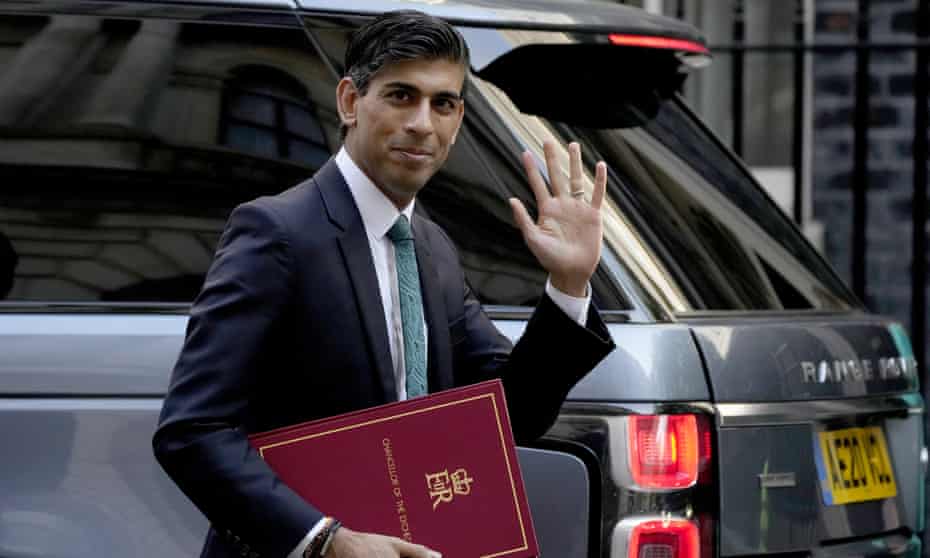Businesses badly need some help from Rishi Sunak’s autumn budget

Slowing growth and tax rises to come, let alone higher wage costs and staff shortages, mean many firms are facing a grim outlook

Budget speeches normally last for about an hour and by tradition chancellors spend the first 10 minutes or so pointing out how well the economy is performing. All do this regardless of their political affiliation, and they usually have to be selective in their choice of statistics to support their claims.
We know Rishi Sunak will conform to type because he has already been rehearsing some of his lines: Britain will be the fastest growing economy in the G7 this year; unemployment will peak at less than half of what was feared when the pandemic began; the budget deficit is coming down much faster than the Office for Budget Responsibility expected in the spring.
Not all of this is spin (although some of it will be). All things considered, Sunak can be content with how the economy has coped with the dislocation caused by the repeated lockdowns of the past 18 months. Sure, there has been plenty of pain but it could have been a lot worse.
The chancellor is smart enough to know, however, that the economy still faces a tough winter even if calls for new Covid-19 restrictions can be resisted. Growth has slowed since the middle of the year and the rising cost of living has dented consumer confidence, while businesses are facing a triple whammy of reduced financial help from the government, spiralling energy bills and higher wage costs.
Premier Inn is a case in point. The good news for the hotel chain is that occupancy in the latest six weeks was above pre-crisis levels, helped by the decline in working from home and the increase in leisure business caused by more people deciding to holiday in the UK. On the other hand, the chain is having problems with recruitment and retention, forcing its owner, Whitbread, to increase the size of its wage bill and set aside GBP10m for loyalty bonuses.
Up until now, the government’s response to company chiefs fretting about rising costs has been simple: pay up and shut up. Sunak will start to rebuild bridges with the Tory party’s traditional supporters by announcing some business-friendly measures in the budget.
Whether these will do the trick remains to be seen. Employers’ national insurance contributions are going up by 1.25% next April and corporation tax will be raised from 19% to 25% a year later. The lower rate of VAT for hospitality is being phased out. And while the chancellor will announce the result of his fundamental review of business rates, he is not going to unveil major changes to the current regime. That will come as a big blow to those businesses – high street retailers, for example – that have been pushing for radical reform.
Growth is more important to Xi than cutting emissions
China is the world’s second biggest economy but in a class of its own when it comes to the output of CO2. It currently produces 28% of global emissions, almost double that of the US, and four times that of India. No question, there will be no solution to global heating without Beijing’s full participation.
The signs are not good. While the importance of Xi Jinping’s likely no-show at the UN Cop26 conference in Glasgow has probably been overdone, it is also clear that for China there is a trade-off between growth targets and emissions reduction targets. And for the moment, the former is a higher priority. Coal production – which accounts for more than half the country’s energy – has been increased in response to power shortages.
Xi and his colleagues are well aware of the threat of climate change. The noxious clouds of pollution that hang over Beijing and other Chinese cities are an ever-present reminder of the need to cut emissions, and are one reason why the latest five-year plan aims for slower but more sustainable growth.
Growth is certainly moderating. Officially, the economy grew by 0.2% between the second and third quarter of 2021 but Julian Evans-Pritchard, China analyst for Capital Economics, says his calculations point to an outright contraction. Energy shortages were just one problem. The slow collapse of the property giant Evergrande and fresh outbreaks of the Delta variant of the coronavirus didn’t help either.
If there’s one thing that terrifies the leaders of China’s Communist party it is the prospect of widespread political unrest prompted by an economic downturn that the authorities struggle to arrest. Deeply worrying it may be, but Xi will only commit to targets others deem vital for the survival of the planet once his own survival is not at risk.
